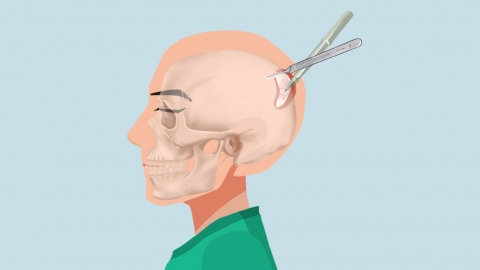What is the cause of pineal cyst?
Generally, pineal cysts may be caused by congenital factors, obstruction of the pineal gland duct, viral encephalitis, head trauma, hyperthyroidism, and other factors. If discomfort occurs, timely medical consultation is recommended. Specific analyses are as follows:

1. Congenital Factors
During embryonic development, there may be subtle abnormalities in the formation and development of the pineal gland. The primitive pineal cells may experience disordered arrangement or abnormal fluid metabolism during proliferation, differentiation, and migration, leading to the formation of fluid-filled cystic structures in the pineal region. Regular prenatal checkups, maintaining balanced nutrition, and avoiding exposure to harmful substances such as radiation and chemical toxins during pregnancy are important to reduce the risk of abnormal embryonic development.
2. Obstruction of Pineal Gland Duct
The pineal gland has physiological functions such as secretion and excretion, with its duct responsible for transporting secreted substances. When the duct becomes obstructed due to physiological reasons such as narrowing, twisting, or concentrated secretions, the fluid secreted by the pineal gland cannot be discharged normally, accumulating locally and gradually forming a cyst. Maintaining a healthy lifestyle to avoid endocrine disorders that may affect pineal function, maintaining regular sleep patterns, and engaging in appropriate physical exercise are recommended in daily life.
3. Viral Encephalitis
Viral encephalitis is an inflammatory disease of the central nervous system caused by various viruses, such as enteroviruses and herpes simplex virus. Inflammation can affect the pineal gland, leading to fluid accumulation and cyst formation. It may also be accompanied by symptoms such as headache and fever. Treatment under a doctor's guidance may include medications such as Ceftriaxone Sodium for injection, Acyclovir for injection, and Dexamethasone Sodium Phosphate Injection.
4. Head Trauma
External impact to the head may damage brain tissue in the pineal region, inducing cyst-like changes. Symptoms such as nausea and vomiting may also occur. Medications such as Sodium Cytidine 5'-Monophosphate Capsules, Oxiracetam Capsules, and Tramadol Paracetamol Tablets may be used under medical guidance for treatment.
5. Hyperthyroidism
Hyperthyroidism may be related to autoimmune factors, dietary factors, genetic factors, etc., potentially causing abnormal hormone levels in the body, affecting normal pineal function, and inducing cyst formation. Symptoms such as palpitations and excessive sweating may also appear. Treatment under a doctor's advice may include medications such as Methimazole Tablets, Propylthiouracil Tablets, and Levothyroxine Sodium Tablets.
In daily life, attention should be paid to enhancing physical exercise, strengthening physical constitution, improving immunity, and reducing the risk of infections and autoimmune diseases.






